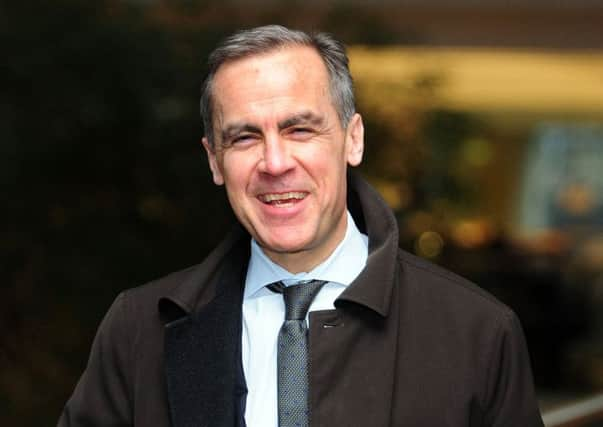Bank of England governor hints at rate rise


Carney said that inflation was still expected to dip below 1 per cent in the coming months, but added: “What that means though, for this economy to have balance and inflation to get back to 2 per cent over the next few years, is that … interest rates are going to have to increase.”
“We don’t know the precise timing that will start, but what we are emphasising is the path of interest rate adjustments …is expected to be a gradual set of interest rate increases and to a more limited extent than the past.”
Advertisement
Hide AdAdvertisement
Hide AdThe governor’s comments came as McCafferty, one of two Bank of England policymakers who have voted for higher interest rates since August, said the economy was running out of slack.
Despite signs of a slight slowdown he warned that inflation could pick up more quickly than the bank itself has forecast.
He said: “Overall, I think that the risks around our central estimate of slack in the November inflation report are probably skewed to the downside, and that in practice there may not be that much spare capacity left in the labour market.”
The bank has kept interest rates at a record low of 0.5 per cent for nearly six years, since the financial crisis.
McCafferty and fellow rate-setter Martin Weale broke away from their seven colleagues in August and began voting for a rate hike.
They argue the Bank should get ahead of a possible build-up of inflationary pressure as the UK economy finally rebounds from the crisis and grows at about 3 per cent a year.
The Bank said last month it expected inflation – which in September fell to a five-year low of 1.2 per cent – would return to its target of 2 per cent only in about three years’ time and signalled it was comfortable with the view in markets that a first rate hike would only come deep into 2015.
SUBSCRIBE TO THE SCOTSMAN’S BUSINESS BRIEFING